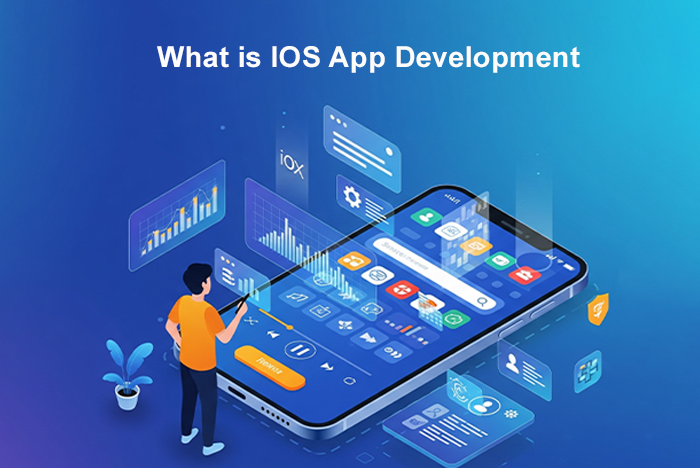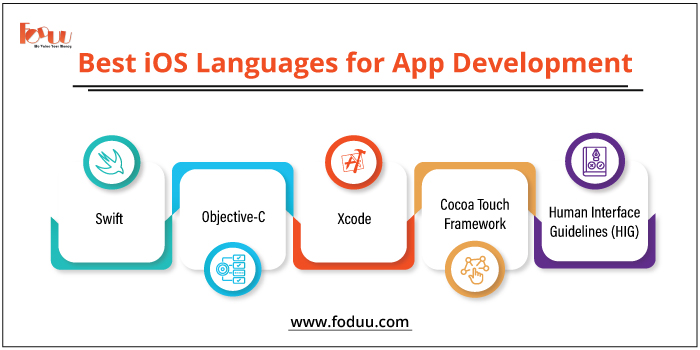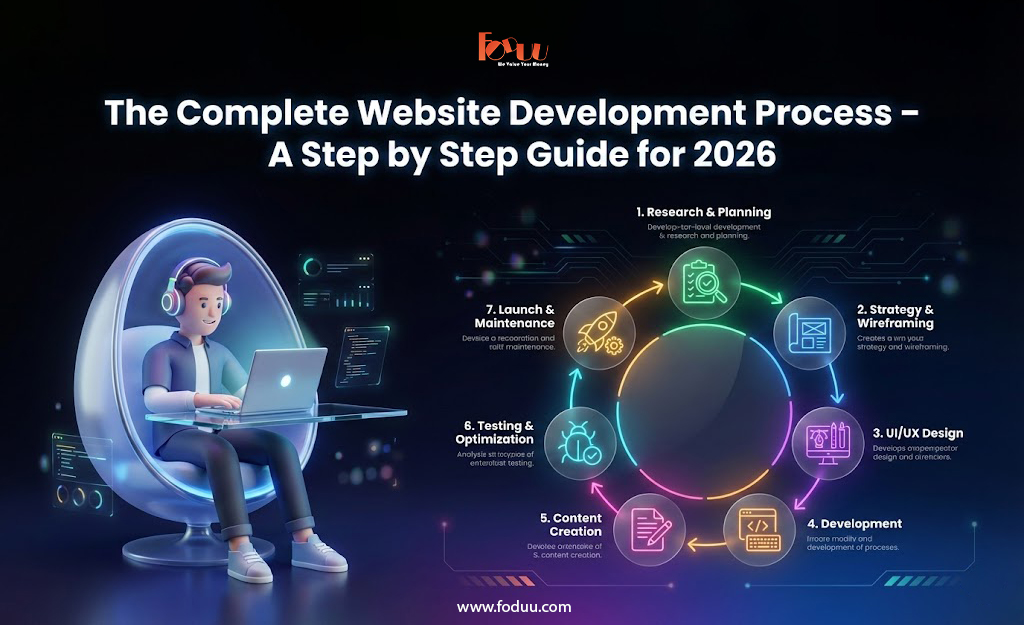The release of the smartphones changed the way we build our relationships with technology, and the leader of the revolution is the ecosystem of iOS devices. Having a creative sleek design, great security, and ease of use, iPhones and iPads have already gained a large share of the global market, which is why iOS development of applications has become a profitable and strategic undertaking both by companies and individuals. Nevertheless, similar to all other specialized areas, working with Apple enclave has its plus and minuses and should be carefully examined.
This comprehensive guide will explore what iOS app development entails, break down its key components, and provide an in-depth analysis of the advantages and disadvantages of investing in iOS app development services.
What is iOS App Development

iOS App Development can be defined as the process of developing iOS applications that are specific to the operating system of the Apple company. The applications are designed to work with Apple-based hardware like the iPhones, iPads and iPod Touch products. The products are developed using proprietary programming languages and tools normally offered by Apple:
Best IOS Languages for App Development

Swift: The new, fast and easy to use Apple programming language, devoted to safety, performance and contemporary patterns of software design. It has mostly overtaken Objective-C as the most used iOS development language.
Objective-C: The older object-oriented, the general-purpose program language used mainly to develop iOS and macOS. Swift is now heavily favored in any new development whereas legacy projects still preferentially use it.
Xcode: Apple Inc. integrated development environment (IDE). Xcode offers a full package of tools to create, debug, and publish iOS, macOS, watchOS, and TV OS applications. It has a source code editor, graphical user interface builder (Interface Builder), a debugger, and other performance debugging tools.
Cocoa Touch Framework: A comprehensive collection of frameworks and APIs that offer the basic building blocks for iOS apps. These frameworks take care of everything from user interface (UIKit), graphics (Core Graphics, Metal), animation (Core Animation), data management (Core Data), and location services (Core Location).
Human Interface Guidelines (HIG): Apple has a rigid set of rules that governs the design and interaction guidelines for iOS apps. Compliance with HIG provides a harmonized and intuitive user experience throughout the iOS universe, which is one of the key drivers behind Apple's success.
The iOS App Development process normally involves a number of steps: ideation and planning, UI/UX design, development, testing, and deployment on the Apple App Store.
Related Post: 6 Best iOS Languages for App Development
Advantages (Pros) of iOS App Development
Investing in iOS App Development services has many strong advantages, so it's a very desirable option for most businesses.
1. Higher User Experience (UX)
Consistency and Sheen: Apple's strict Human Interface Guidelines (HIG) and closely managed environment lead to a very consistent, intuitive, and sheened user experience on all iOS devices. People have come to expect this level of quality, and iOS apps tend to provide it.
Performance: iOS phones, paired with streamlined hardware and software, have a reputation for silky-smooth performance, speed, and absence of fragmentation. This results in a smooth and satisfying user experience.
High Engagement: As a result of the premium feel and coherent UX, iOS users tend to engage more deeply with their apps, spending longer and using them more intensively.
2. Greater Revenue Potential
High-end User Base: Numerically, iOS users generally represent a more upscale user base with higher disposable income. This commonly results in a willingness to pay more for apps, in-app purchases, and premium offerings.
Monetization Opportunities: The well-established monetization platforms (paid apps, in-app purchases, subscriptions) in the App Store work extremely well. Developers frequently achieve greater average revenue per user (ARPU) on iOS than on Android.
Stronger Conversion Rates: The streamlined App Store experience and confidence in the Apple ecosystem tend to result in stronger conversion rates from app download to purchase.
3. Improved Security and Data Privacy
Strong Security Architecture: Apple's iOS is famous for its robust security features, sandboxing, and rigorous app review process. This renders iOS devices and apps more resistant to malware and cyber attacks.
User Privacy Emphasis: Apple emphasizes user privacy with features such as App Tracking Transparency (ATT) that give users control over their data. This instills trust among users and can be a major selling point for your app.
Less Malware Episodes: Due to the closed environment of the iOS ecosystem and stringent App Store review, the rate of malware and malicious app episodes is lower compared to Android.
4. Fragmented Market and Simpler Testing
Fewer Device Fragmentation: Apple owns the hardware as well as the software, hence there are far fewer device models and iOS versions to support than the mass Android ecosystem. This makes testing easier, cuts down on development time, and decreases maintenance costs.
Improved Performance: Writing for a limited hardware set enables developers to fine-tune applications more accurately for performance and battery usage.
5. Rich Developer Ecosystem and Tools
Xcode & Swift: Apple offers a mature and robust IDE (Xcode) and a modern, developer-oriented language (Swift) which is continuously evolving with new features and enhancements.
Rich Documentation: Apple's documentation for developers is rich, well-structured, and frequently updated, offering a treasure trove for developers.
Active Community: There is a large, active community of iOS developers who share knowledge, provide assistance, and participate in open-source projects.
6. Brand Perception and Prestige
Premium Brand Association: To have an app in the Apple App Store imbues a certain prestige and lends authenticity to your brand's focus on quality and innovation.
Trust and Reliability: Users tend to view iOS applications as more reliable and trustworthy because of Apple's strict review process and quality checks.
Related Post: Top 10 Advantages of iPhone App Development In 2025
Disadvantages (Cons) of iOS App Development
Irrespective of its numerous advantages, iOS App Development is also fraught with some limitations and drawbacks.
1. Greater Development Cost (Often)
Expert Skill Set: iOS development involves people with Swift/Objective-C and Xcode expertise, which at times can be a more specialized and hence a more costly skill set to develop than wider Android development.
Hardware Needs: One requires macOS hardware (MacBook, iMac, Mac mini) to deploy Xcode and create iOS apps, which is an added expense.
App Store Fees: Apple charges a developer program fee (around $99/year) to distribute apps on the App Store. Apple also charges a commission (around 15-30%) on app sales and in-app purchases.
2. Strict App Store Review Process
Tough Guidelines: Apple's App Store Review Guidelines are very strict. Apps need to comply with these guidelines with respect to design, functionality, content, and security. Failure to comply can result in rejection or lengthy delays.
Potential for Rejection: The strict approval process is such that your app could be rejected repeatedly before being approved, which can result in frustration and delays to launch.
Control over Monetization: Apple also has strict controls over monetization practices and frequently insists that in-app purchases must be routed through their system at a cut of the revenues.
3. Limited Audience Reach (Compared to Android)
Smaller Share of Market (Globally): Although iOS users tend to be more prosperous, Android has a much larger worldwide market share, especially within emerging markets such as India. If your main target market is a mass global market, targeting only iOS may cap your reach.
Device Exclusivity: iOS apps are limited to Apple devices and therefore cannot be shared with users on Android, Windows, or other platforms without creating an alternative app.
4. Less Customization and Closed Ecosystem
Less Flexibility: The iOS ecosystem is closed down more than Android. So, developers have less room for system-level customizations, hardware features (beyond approved APIs), and third-party integrations than on the more open Android platform.
Limited Distribution: Apps are limited to distribution via the Apple App Store (except in the case of enterprise distribution), with less flexibility than Android's several app stores and sideloading capabilities.
5. Backward Compatibility Issues
Fast OS Updates: Apple updates majorly iOS once a year. Although this introduces new features, it also signifies developers will have to constantly update their apps to maintain compatibility with the newer versions of iOS and take advantage of new APIs, at times involving deprecation of existing code.
Hardware Refresh Cycles: Apple is promoting users to upgrade their devices regularly. Although this results in users having newer, more powerful hardware, developers occasionally have to trade off between maintaining support for older devices and taking advantage of the features of the new hardware.
6. Relyance on Apple's Ecosystem
Platform Risk: The success of your application is attached to Apple's policies, upheavals in their ecosystem, or alterations in their strategic direction. A rapid change in App Store guidelines can greatly affect your application.
The Significance of iOS App Development Services
Due to the complexity and special skill sets involved, most companies prefer to outsource professional iOS App Development services in India. Such firms offer turn-key solutions, generally encompassing:
Strategy & Consulting: Assisting in determining app features, user flow, and monetization.
UI/UX Design: Designing intuitive, elegant interfaces following Apple's Human Interface Guidelines.
Native iOS Development: Writing the app in Swift/Objective-C in Xcode.
Backend Development & API Integration: Developing the server-side functionality and integrating the app with third-party services.
Quality Assurance & Testing: Thorough testing for functionality, performance, security, and UI on different iOS devices and versions.
App Store Optimization (ASO): Optimizing the app's listing to increase visibility on the App Store.
Deployment & Submission: Managing the intricate App Store submission process.
Post-Launch Support & Maintenance: Delivering updates, bug fixes, and ongoing improvements.
Hiring a seasoned iOS & iPhone App Development Company India can speed up time-to-market, guarantee compliance with Apple's quality requirements, and lead to a high-functioning, user-friendly app.
Related Post: 6 Best iOS Languages for App Development
Conclusion
iOS App Development presents a compelling opportunity for organizations seeking to access a premium market segment that is characterized by greater engagement and expenditure. The platform's focus on a superior user experience, strong security, and streamlined ecosystem offers substantive benefits to brand reputation and monetization. Yet, they also have to deal with greater development costs, a strict App Store review process, and a relatively smaller international exposure compared to Android.
By knowing how to thoroughly balance these advantages and disadvantages and possibly availing themselves of specialized iOS App Development services, companies can thoughtfully navigate the intricacies of the Apple world to create an app that genuinely speaks to its audience and accomplishes its business goals.
FODUU is a leading app and website development company in India with over 14 years of expertise in creating innovative android and iOS applications and websites to its clients. Contact Us Today to get a free web app development services.

![What is iOS App Development? [Pros and Cons]](https://www.foduu.com/images/photos/shares/What-is-iOS-App-Development-Pros-and-Cons.png)








